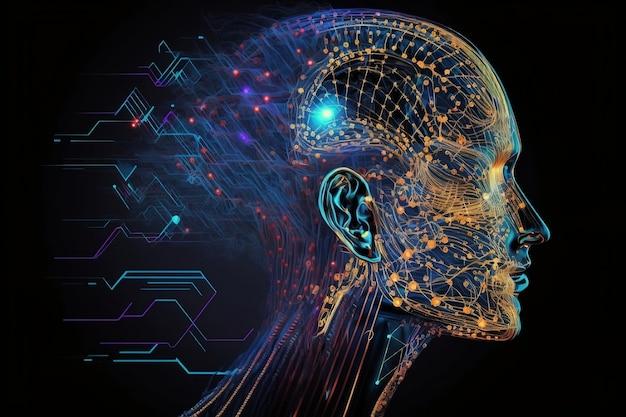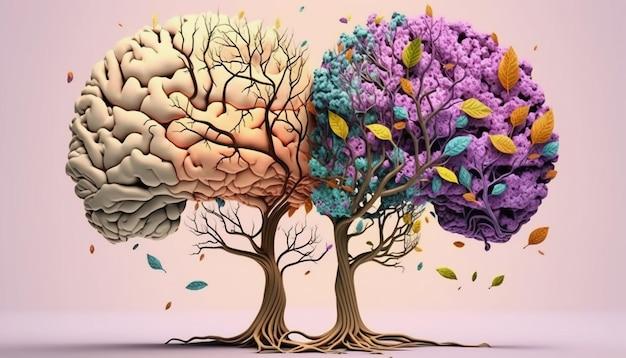Technology has become an inseparable part of our daily lives, constantly evolving and shaping the way we live, work, and communicate. Combining with the wonders of science, technology has had an immense impact on human life, revolutionizing various aspects of our existence. In this blog post, we will explore the profound impacts of science and technology on human life, examining why the study of science is crucial and how it has become a fundamental aspect of our society.
Science holds the key to understanding the world around us, from the smallest particles to the vastness of the universe. It enables us to satisfy our innate curiosity and unravel the mysteries of life. Moreover, science plays a pivotal role in advancing human knowledge and driving innovation. By harnessing scientific discoveries and integrating them with technology, we have witnessed remarkable breakthroughs that have transformed our lives in unimaginable ways. From healthcare advancements to the digital revolution, the impact of science and technology is undeniable.
In this blog post, we will delve into the various ways science and technology have shaped human life, exploring their importance in everyday situations and how they have become an integral part of our society. So, let’s embark on this journey to discover the profound impacts of science and technology on our lives and gain a deeper understanding of why they are vital in the world we live in.

Impacts of Science and Technology on Human Life
Enhancing Communication and Connectivity
Science and technology have revolutionized the way humans communicate, transforming how we connect with one another. From the invention of the telephone to the rise of social media platforms like Facebook and Twitter, our ability to interact and share information has reached unimaginable heights.
Bridging the Distance
Long gone are the days of relying solely on snail mail or telegrams to stay connected with loved ones across the globe. With advancements in technology, we can now video chat in real-time with friends and family on different continents, bridging the distance and shrinking the world.
A Web of Connections
The internet has become an integral part of our daily lives, providing a platform for connecting with people from all walks of life. Whether you’re chatting with an old friend, participating in a virtual conference, or sharing your thoughts on a blog like this one, technology has created a web of connections that spans the globe.
Empowering Education and Learning
Science and technology have had a profound impact on education, empowering both students and teachers with new tools and resources to enhance learning experiences.
Expanding Access
Technology has made education more accessible than ever before. Online courses, virtual classrooms, and educational apps allow students to learn at their own pace and from the comfort of their homes. This has opened up opportunities for individuals who may have otherwise faced barriers to higher education.
Enriching Engagement
Gone are the days of static textbooks and one-size-fits-all lectures. With the advent of interactive digital tools, learning has become more engaging and immersive. From virtual reality simulations to online collaboration platforms, technology has revolutionized the way we acquire knowledge and engage with educational content.
Improving Healthcare and Well-being
The impact of science and technology on human life is perhaps most evident in the field of healthcare, where advancements have led to improved diagnoses, treatments, and overall well-being.
Enhanced Diagnostics
Technological advancements have revolutionized the way diseases are diagnosed. From high-resolution imaging techniques like magnetic resonance imaging (MRI) to targeted genetic testing, doctors can now identify and treat conditions with greater accuracy and efficiency.
Personalized Medicine
Advances in science and technology have paved the way for personalized medicine, tailoring treatments to an individual’s specific genetic makeup. This approach has the potential to revolutionize healthcare, improving patient outcomes and reducing the risk of adverse reactions to medications.
Transforming Work and Productivity
Science and technology have transformed the way we work, creating new opportunities, automating tasks, and increasing overall productivity.
Remote Work Revolution
The past year’s pandemic has accelerated the shift towards remote work, made possible by technological advancements. With tools like video conferencing, cloud computing, and project management software, employees can collaborate and work from anywhere in the world, saving time and increasing efficiency.
Automation and Efficiency
Technology has automated many repetitive and time-consuming tasks, freeing up human resources for more creative and strategic endeavors. From chatbots and artificial intelligence to robotic process automation, businesses can streamline operations and improve productivity.
The impacts of science and technology on human life are vast and multifaceted. From revolutionizing communication and education to improving healthcare and transforming the way we work, advancements in science and technology have reshaped our world. As we move forward, it is essential to embrace these innovations while remaining mindful of the ethical and societal implications they bring. The future of science and technology holds endless possibilities, and it is up to us to ensure that we leverage these advancements for the benefit of all.

FAQ: What are the impacts of science and technology on human life
Why do we need to study life
Studying life is crucial because it helps us understand the world around us and our place in it. Life is all about experiences, learning, and growth. By delving into the intricate details of life, we can gain a deeper understanding of how living organisms function and how we can improve our own lives.
What is the main goal of science
The main goal of science is to explore, understand, and explain the natural world through observation, experimentation, and evidence-based reasoning. It aims to uncover the underlying truths and principles that govern the universe. Science seeks to expand our knowledge and provide us with a foundation for making informed decisions.
What is earth and life science all about
Earth and life science covers various aspects of the natural world, focusing on both the Earth and living organisms. It encompasses subjects like geology, biology, ecology, and environmental science. Earth and life science allows us to explore the interactions between Earth and its inhabitants, providing valuable insights into the complex web of life and the dynamics of our planet.
Why science is sometimes seen as a curse
Science is not inherently a curse, but rather a tool that can be used for both positive and negative purposes. It has the potential to bring about significant advancements and improve human life. However, if used irresponsibly or with harmful intentions, science and technology can have adverse effects. It is upon us as individuals and a society to ensure that scientific advancements are used ethically and for the betterment of humanity.
What is your expectation in earth and life science
In earth and life science, we can expect to unravel the mysteries of the universe, understand how our planet functions, and gain insights into the intricate mechanisms of life. It provides a platform for exploration and discovery, and equips us with the knowledge to address pressing environmental and ecological challenges. Ultimately, our expectation is to develop a greater appreciation for the world we inhabit and to strive for its preservation.
How is earth science used in everyday life
Earth science is ingrained in our daily lives in various ways. It helps us predict and mitigate natural disasters such as earthquakes and hurricanes, ensuring our safety. Understanding the properties of different soils aids in agriculture and construction practices. Meteorology relies on earth science to provide accurate weather forecasts. By studying the Earth, we can make informed decisions about resource management and environmental conservation.
Why is it important to study science
Studying science is essential because it fosters critical thinking skills, promotes curiosity, and encourages a deeper understanding of the world. It equips us with problem-solving abilities and enables us to make informed decisions based on evidence and logic. Science drives innovation, fuels technological advancements, and plays a crucial role in addressing global challenges like climate change and public health.
What are the impacts of science and technology on human life
Science and technology’s impact on human life is immense. It has revolutionized almost every aspect of our existence, from communication and transportation to healthcare and entertainment. Scientific discoveries have extended our lifespans, enhanced the quality of life, and connected us across continents. Technological advancements provide us with tools to tackle complex problems, improve efficiency, and explore new frontiers.
What is the importance of science in society
Science is vital for societal progress and development. It fuels innovation, drives economic growth, and empowers us to overcome challenges. Through scientific research, we uncover new knowledge, develop lifesaving treatments, and find sustainable solutions for a rapidly changing world. Science fosters a spirit of inquiry and encourages us to question the status quo, leading to advancements that benefit individuals, communities, and the entire society.
Remember, science and technology are not just abstract concepts; they shape our daily lives in ways we may not even realize. By embracing the wonders of science, we can better appreciate the world around us and make informed choices that contribute to a brighter future.
(Word count: 650)
